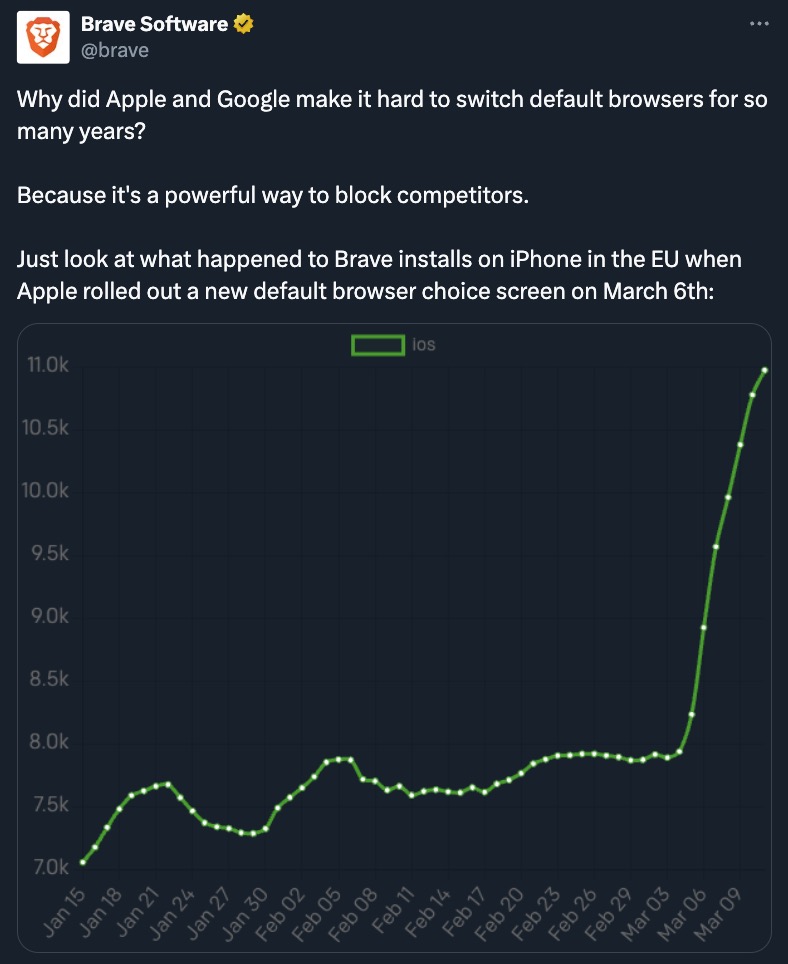Following recent modifications induced by the European Union’s Digital Markets Act (DMA), iPhone users have considerably boosted the installation of the privacy-friendly Brave browser app. Initiated by Apple in its iOS 17.4 release, the DMA obligated the technology giant to allow European users to select their default browser. Apple’s proprietary Safari was simply one option amongst many.
In the past, though iPhone holders could theoretically define their preferred web browser since the iOS 14 launch, this freedom has been somewhat of an illusion.
Apple imposed a standard requiring all third-party web browsers to rely on its WebKit API and limiting the features they were allowed to implement. Following the DMA’s mandate, Apple discarded the WebKit precondition in the EU and began actively offering users initial device setup with a browser selection.
The first indications of Apple’s strategy to align with the DMA materialized in January. By altering the operational dynamics of web browsers on iPhones within the EU, iOS 17.4 enables clients to state their default internet browser preference at the initial Safari activation point. Crucially, various browser engines can now be utilized by creators of competing browsers.
The choice of browsers available to iPhone users comprises Chrome, DuckDuckGo, Edge, Firefox, and Brave.
“Why did Apple and Google make it hard to switch default browsers for so many years?” Brave posted. “Because it’s a powerful way to block competitors. Just look at what happened to Brave installs on iPhone in the EU when Apple rolled out a new default browser choice screen on March 6th.”











